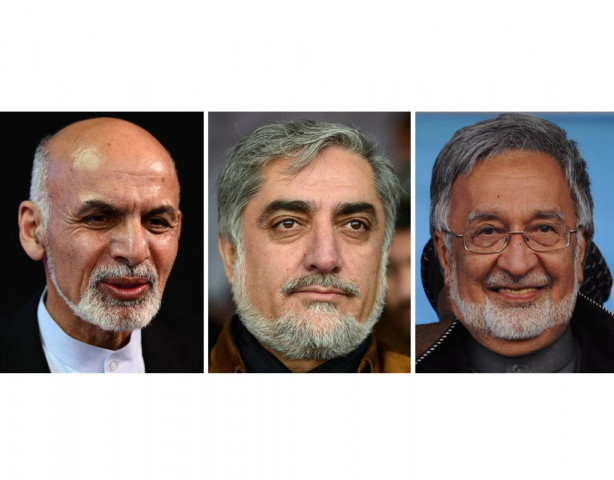Attempts to resume Afghan vote audit stall over disagreement
IEC chairman Ahmad Yusuf Nuristani says the vote audit is expected to resume tomorrow

Attempts to resume Afghan vote audit stall over disagreement
Abdullah and rival Ashraf Ghani agreed to the inspection of all 8.1 million ballots cast in the June 14 poll in a deal brokered by US Secretary of State John Kerry, but the recount has since faced several suspensions as the candidates sparred over how to disqualify ballots.
The audit had been expected to resume on Saturday after the UN and the country's Independent Election Commission (IEC) said both candidates had agreed to a UN-backed proposal that included criteria for invalidating fraudulent ballots.
Abdullah's observers, however, did not show up at the election commission in Kabul, with his spokesperson saying they were still negotiating with the UN.
"The IEC has adopted the UN proposal but we still have our observations," Abdullah's spokesperson Mujib Rahman Rahimi told AFP.
"What happens today is not a boycott, it is not an attempt to disrupt the process, the issue is on how to maximise the criteria for invalidation," he said.
The UN expected the audit to restart on Sunday after the IEC agreed to another 24-hour delay.
"The audit process will resume tomorrow and Inshallah (God willing) we are not thinking of any more delay," IEC chairman Ahmad Yusuf Nuristani said, adding the postponement was to allow Abdullah to finalise the audit agreement with the UN.
Preliminary results from the June 14 run-off showed former finance minister Ghani well ahead of Abdullah, with the latter claiming "industrial-scale" fraud had denied him victory.
The bitter impasse over the vote to succeed President Hamid Karzai had raised fears of a return to the ethnic violence of the 1990s.
In a bid to pull the country back from the brink of crisis, Kerry flew into Kabul early last month and persuaded the two opponents to agree to the audit.
The process has since fallen behind its initial three week schedule as the rival campaign teams fought over disputed ballot papers.
The timetable for the new president to be inaugurated on August 2 has been abandoned and no new date has been set.
The political wrangling also comes during a Taliban spring offensive that has seen an escalation in fighting and brazen attacks targeting Kabul as well as the volatile south and east of the country, with US-led foreign forces due to leave at the end of this year.



















COMMENTS
Comments are moderated and generally will be posted if they are on-topic and not abusive.
For more information, please see our Comments FAQ